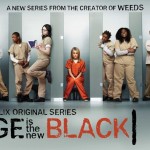During a class discussion in college, I recall one of my English professors off-handedly commenting, “Well, we study literature to become better people, right?” The question struck me as odd then, as it does now. Certainly reading classic works can improve a reader’s analytical skills; perhaps it also aids intellectual and personal development. But that doesn’t mean it always makes us more moral. I was a physics major in college, and this point seemed clear-cut to me at the time. I could learn the rules and skills of solving scientific problems, but simply gaining that knowledge did not mean I would use it to make my communities or myself better. Many types of education provide the tools for exercising and attaining the virtues, but it doesn’t mean we make good on that promise.
The study of literature can be an especially slippery slope. In his recent New York Times piece “Does Great Literature Make us Better?”, Gregory Currie remarks that a lot of people believe “that exposure to challenging works of literary fiction is good for us,” even thought there’s psychological research that proves this. Currie briefly summarizes the existing evidence, but ultimately concludes that it is weak. He writes, “Everything depends in the end on whether we can find direct, causal evidence: we need to show that exposure to literature itself makes some sort of positive difference to the people we end up being.” While definitive empirical proof of literature’s benefits may not be available anytime soon (and it’s pursuit is arguably misguided), Currie does raise an good point: we believe in literature’s moralizing effects more than we can prove them. Sometimes when this disconnect becomes clear, the results are hilarious, as when the New Yorker expressed dismay that a man who read as much good literature as Barack Obama was capable of ordering drone strikes.
The state of contemporary literary criticism complicates this question. It often takes a “death of the author” approach and is conducted without respect to an absolute meaning of the work. This an easy and enjoyable approach; to interpret prose and poetry through any number of ideological frameworks, regardless of how much we actually agree with them, or believe that the author intended them, can be an amusing exercise. I’ll be the first to admit I’m guilty of this. It can be fun to do a Marxist reading of Jane Austen once in awhile.
But when the study of literature becomes about performing different readings of a text, rather than uncovering the intention of the text, meaning is generated rather than discovered. Either approach—generating or discovering meaning— may be internally methodologically consistent but the question remains whether either one “makes us better people”. A more traditional critic might say that uncovering authorial intent can help us understand specific moral principles the writer wished to pass along. A post-structuralist might claim that in a world where morality is relative, the reader can subjectively derive his own moral lessons from the piece. But again, I wonder if either of these really answer the question. The study of literature can expose us to moral questions and encourage us to look for answers and live our lives accordingly, but do we?
This trend may be a flaw in our education, generally speaking. We can learn to analyze, apply, and evaluate ideas, but do they inform our personal views? And beyond that, do they inform the way we live? Currie has maybe inadvertently uncovered an issue of integrity in the way our knowledge shapes (or fails to shape) our actions, in literature as well as other spheres of study.
It’s worth considering if our own personal theological educations tend a similar direction. Do we study the Bible and the work of great theologians solely to develop an internally consistent reading? Or to understand historical context? Or to extract do’s and don’t’s? Or do we instead somehow make that mysterious connection where study breeds faith which breeds action? Do we practice what Hans Urs von Balthasar calls a “kneeling theology?”
As a young atheist noted in this Atlantic article “Christianity is something that if you really believed it, it would change your life and you would want to change [the lives] of others. I haven’t seen too much of that.” This statement, in many ways parallel to Currie’s, describes a trend that is perhaps difficult to prove, but certainly issues a challenge to the intellectual and spiritual integrity of us all.
[Image of Books from Wikipedia]













